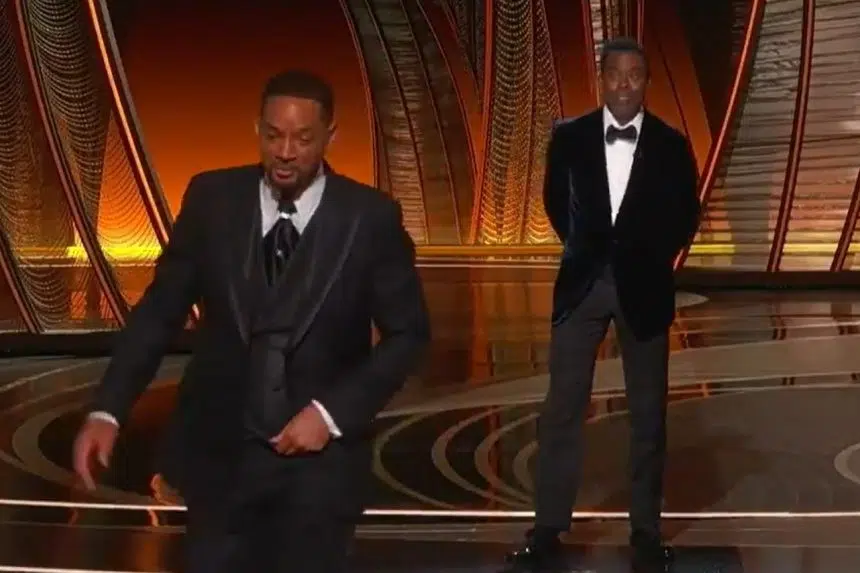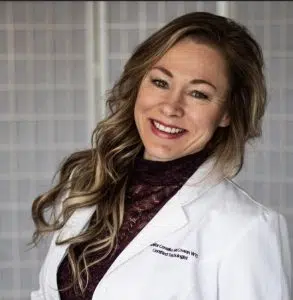Jennifer Cenaiko McCowan hopes an incident at the Oscars will have a positive impact when it comes to the conversation around hair loss.
Will Smith walked onto the stage and slapped Chris Rock after Rock made a joke directed at Smith’s wife, Jada Pinkett Smith. She has shaved her head due to suffering from alopecia.
“For those of us who have hair loss, we are sort of stuck in our little bubble, but with the cork coming off the champagne bottle (Sunday) night, it has really brought hair loss 100 per cent mainstream,” said McCowan, the owner of Hope Hair Recovery in Saskatoon.
“Fifty per cent of people by the age of 35 have hair loss so it’s something that needs to be spoken about and something that needs to be celebrated and offered supports and avenues for people to get access to the products and services that they need.
“We could finally see the emotion attached (to hair loss) — how a man stuck up for his wife and how a woman sat there horribly embarrassed in front of millions of people.”
McCowan said she thinks this could help people realize how serious hair loss can be for someone.
“It is something to be taken very seriously. I know we all try to make fun of things but words hurt, even as an adult,” McCowan said.
“There are more people that you know that are covering up their hair loss. You would have no idea but so many of us are hiding under a hat or under a wig or a hairpiece because they are too afraid to talk about it and, really, there’s not a lot of help out there for people.”
McCowan said hair loss is something that can have devastating effects on people.
“They don’t want to talk about it. There’s a lot of shame — that’s probably the best word that I can use to describe it — and worry,” she said. “It creates a ton of anxiety.
“The hair on top of your head is like your crown and that’s how you present yourself to the rest of the world. If you don’t feel good when you see what’s being reflected back in the mirror, it has a direct effect on mental health.
“Forty per cent of cancer patients will deny chemotherapy out of fear that they will lose their hair. That’s awful.”
She knows first-hand what kind of effect hair loss can have — she lost her own hair three different times.
“It’s devastating. My dad was killed in a car accident one month after I had my son and I was having a hard enough time just losing my hair because of babies, let alone the stress and it had a horrible, detrimental effect on me,” McCowan said.
“I started taking down mirrors in my house. I had considered suicide. I found myself extremely depressed.”
That experience led to her leaving her career as a hairdresser and became a trichologist, a specialist who studies the diseases or problems related to the hair and scalp as well as their treatments.
She opened up Hope Hair Recovery, which helps people try to identify what is causing their hair loss and how to treat it.
She says she deals with patients of all ages and genders.
“It took a huge turn when COVID hit because a lot of people experienced hair loss during COVID. A lot of people who had never been familiar with that, it has catapulted over the last couple of years,” McCowan said.
She said she’s already seeing an impact when it comes to the conversation around hair loss.
“The internet is lighting up. My Facebook page has gone crazy. I’m connected to people all over the world and it has suddenly struck an incredible chord in a lot of people,” McCowan said.
“Even if they are hung up on the physical aspect of what happened (with Rock and Smith), the bottom line is that it has brought enlightenment and awareness to people who have hair loss and the severity of it because it’s not something to be made fun of.”








